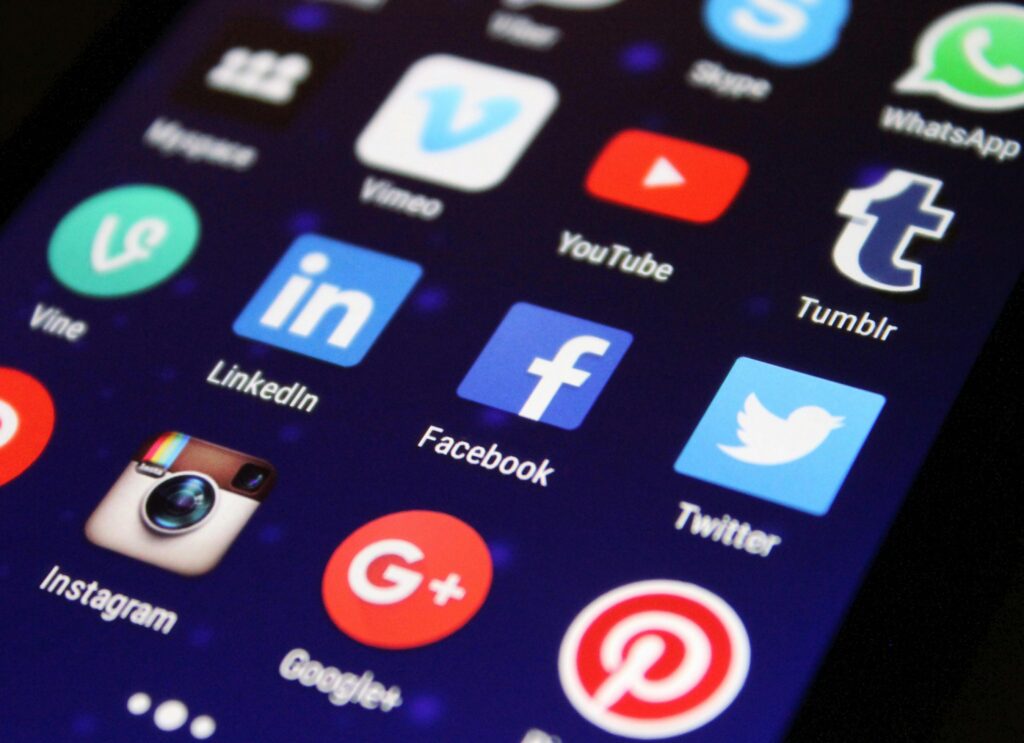
The Evolving Landscape of Social Media: A Deep Dive
In the past two decades, social media has transformed from a niche digital playground into a global phenomenon that influences nearly every aspect of modern life. From its inception with platforms like MySpace and Friendster to the omnipresent giants of today like Facebook, Instagram, and TikTok, social media has become an integral part of how we communicate, consume information, and perceive the world around us. This blog explores the evolution of social media, its impact on society, and what the future might hold for these digital communities.
The Early Days: Birth of a Digital Revolution
The early 2000s saw the rise of the first generation of social media platforms. MySpace, launched in 2003, was one of the pioneers that allowed users to create personal profiles, connect with friends, and share content. Its success was followed by the advent of Facebook in 2004, initially created by Mark Zuckerberg and his college roommates. Facebook’s unique approach to connecting people based on real-world networks quickly set it apart from its predecessors.
During this period, social media was largely about reconnecting with friends and meeting new people. It was a time of discovery, where users were still learning about the potential of these platforms. Early adopters were excited about the ability to share personal updates, photos, and thoughts with a broader audience.
The Expansion Era: Platforms and Phenomena
As social media platforms matured, they began to diversify and specialize. Twitter, launched in 2006, introduced the concept of microblogging with its 140-character limit, emphasizing brevity and immediacy. This platform became a powerful tool for real-time communication and news dissemination.
YouTube, which debuted in 2005, revolutionized the way we consume video content. By allowing users to upload, share, and view videos, it created a new realm of content creation and consumption. The rise of viral videos and user-generated content marked a significant shift in media consumption.
The emergence of Instagram in 2010, with its focus on visual content and aesthetic appeal, heralded the rise of influencer culture. Instagram’s introduction of features like Stories and IGTV further cemented its role in shaping online trends and brand engagement.
The Era of Influence: Social Media’s Impact on Culture
Social media has had a profound impact on culture, influencing everything from fashion and entertainment to politics and social movements. Platforms like TikTok have given rise to new forms of entertainment and social interaction. TikTok’s algorithm-driven feed, which showcases a mix of trending challenges, dance routines, and comedic skits, has created a new wave of internet celebrities and trends.
The influence of social media extends to activism as well. Movements like #BlackLivesMatter and #MeToo have gained momentum through the power of social media, amplifying voices and bringing attention to crucial issues. Social media provides a platform for grassroots movements to reach a global audience, enabling real-time mobilization and support.
However, the influence of social media is not without its challenges. The spread of misinformation and fake news has become a significant concern, with platforms grappling to balance free speech and the prevention of harmful content. The rise of echo chambers and filter bubbles has also raised questions about how social media can create polarized environments, where users are exposed primarily to viewpoints that reinforce their existing beliefs.
The Business of Social Media: Marketing and Monetization
For businesses, social media has become an essential tool for marketing and customer engagement. The ability to target specific demographics with tailored ads has transformed the advertising landscape. Platforms like Facebook and Instagram offer sophisticated targeting options that allow brands to reach potential customers based on interests, behaviors, and location.
Influencer marketing has become a major industry in its own right. Brands collaborate with social media influencers who have large followings to promote products and services. The authenticity and relatability of influencers often lead to higher engagement and conversion rates compared to traditional advertising methods.
Moreover, the rise of e-commerce integrations on social media platforms has created new opportunities for direct sales. Features like Instagram Shopping and Facebook Marketplace allow users to discover and purchase products without leaving the app, streamlining the shopping experience.
Privacy and Ethical Considerations
As social media continues to evolve, privacy and ethical considerations remain at the forefront. Data breaches and concerns over user privacy have prompted debates about how much information should be collected and how it should be used. The implementation of regulations like the General Data Protection Regulation (GDPR) in Europe and the California Consumer Privacy Act (CCPA) in the United States reflects growing concerns about data privacy and user rights.
Social media companies face increasing pressure to address issues related to content moderation, algorithmic transparency, and the ethical use of data. Ensuring that platforms are safe and respectful spaces while balancing the need for freedom of expression is a complex and ongoing challenge.
Looking Ahead: The Future of Social Media
The future of social media is likely to be shaped by several key trends. Augmented Reality (AR) and Virtual Reality (VR) are poised to play a significant role in enhancing user experiences. Platforms are already experimenting with AR filters and VR environments, which could lead to more immersive and interactive social media experiences.
Artificial Intelligence (AI) will continue to drive advancements in content personalization and moderation. AI-powered algorithms can enhance user engagement by delivering more relevant content, but they also raise concerns about privacy and bias.
The concept of decentralized social media is gaining traction as well. Decentralized platforms aim to give users more control over their data and reduce reliance on central authorities. Blockchain technology is being explored as a means to create more transparent and equitable social media ecosystems.
Conclusion: A Dynamic Landscape
Social media has come a long way since its early days, evolving into a multifaceted and influential force in society. It has transformed communication, culture, and commerce, while also presenting new challenges and opportunities. As we look to the future, it is clear that social media will continue to evolve, shaping and being shaped by the ever-changing dynamics of the digital world.
In navigating this dynamic landscape, it is essential for users, businesses, and policymakers to remain informed and engaged. By understanding the impact of social media and actively participating in its evolution, we can harness its potential for positive change while addressing its challenges and limitations. The journey of social media is far from over, and its future promises to be as exciting and transformative as its past.

